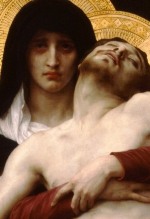The fourth estate is crumbling
“Burke said there were Three Estates in Parliament; but, in the Reporters’ Gallery yonder, there sat a Fourth Estate more important far than they all. It is not a figure of speech, or a witty saying; it is a literal fact,–very momentous to us in these times. Literature is our Parliament too. Printing, which comes necessarily out of Writing, I say often, is equivalent to Democracy: invent Writing, Democracy is inevitable.” Thomas Carlyle 1841 On Heros and Hero Worship Thomas Carlyle: 1795 – 1881. A Scottish essayist, satirist, and historian, whose work was highly influential during the Victorian era.If you are a news and/or political junkie, a concerned citizen, own a television, have heard of the internet, have a beating heart and live on this planet, then you have no doubt heard too much already about this election cycle. I will not add to it other than to complain that my heart is more than a little broken by the media coverage of the whole affair.
The respect I’ve held for the profession of journalism has evaporated and left behind a very dry, somewhat bitter palate for the “news”. To enlighten and inform the average Joe (sorry … wasn’t going to add to it :) the comman man as the truly noble aim of this profession is essential to a successful functioning democracy.
Edward R Murrow, Walter Cronkite, Alistair Cooke, Malcolm Muggeridge …. names that ring of integrity and gravitas; they suggest a level head with pen in hand, keeping a watchful eye on those frail human beings riding the crest of power that inevitably accompanies political leadership. Many things accompany power and not in the least, corruption. And not because politicians are bad or government is evil, but because human beings are flawed and power is the ultimate temptation (what was it that Satan, so brilliantly brazen, tempted the Christ with?)… or aphrodisiac according to Henry Kissinger (am I the only one uncomfortable with those two words in the same sentence? kidding Henry). Keeping those in power honest and those who put them there informed – journalism, right?
Journalism gives the populace the knowledge to make educated decisions in determining who ought to be representing their needs and opinions in the public square. I agree with Mr. Carlyle … journalism is integral to democracy.
Not bias or influence and not persuasion; these dynamics already have a powerful (maybe ruling?) hand in the machinations of politics which is exactly why the public needs a reliable unbiased source to cover and uncover the facts. The facts of the state of the nation and the process of our government, a read on how we are doing as a people – caring for those in need, protecting those most vulnerable, a watcher on the wall when it comes to the protection of our guaranteed rights and priviledges as citizens and then, of course, the rise and fall of the economy with all of it’s attendant effects in the daily life of our nation. A citizenry needs to know the unadorned truth in order to make informed decisions as we participate in the political process, as we continue to wield our individual stakes in this democratic republic of our making.
And this is where Walter Cronkite et. al. comes into play. To me, Journalism means someone to stand in the gap so to speak and tell the regular folks, we citizens, what is truly going on. And … truly … I cannot come up with one name in the mainstream media today that I can put on a list with him and those of that journalistic caliber. (I am not intending to speak of personal perfection in an individual, but more broadly the understanding of the role of the profession and an attempt to carry it out in it’s highest form)
Which is why I am heartbroken at this point; if there is no reliable unbiased objective source of information to the general population then the entire process becomes much more nasty and brutish (if not short as this whole debacle does make one think of the political philosopher Thomas Hobbes). Can it get any more difficult to maintain the trust of a citizen in his elected officals than when the whole mechanism of public information appears to be up to the highest bidder?
Maybe the best thing that could come from the election cycle of 2008 is that it results in a resuscitation of the heartbeat of journalistic integrity. A rebirth of Journalism which at it’s core serves the public good. A restoration of that glorious “fourth estate” written so beautifully about by Thomas Carlyle.
“There are a few things I would like to pass on to you as I come near to the end of my career. One: It’s not about fame. By and large, the more famous you are, the less of a journalist you are. Besides, fame does not last. At its best, it is about being paid to learn. For fifty years, I have been paid to go out and ask questions. What a great privilege to be a free reporter in a free society, to be someone whose job is a search for knowledge.” David Halberstam (April 10, 1934 – April 23, 2007) an American Pulitzer Prize-winning journalist and author known for his early work on the Vietnam War, his work on politics, history, business, media, American culture, and his later sports journalism.
Thomas Hobbes (5 April 1588 – 4 December 1679) was an English philosopher, whose famous 1651 book Leviathan established the foundation for most of Western political philosophy from the perspective of social contract theory. Hobbes postulates what life would be like without government, a condition which he calls the state of nature. In that state, each person would have a right, or license, to everything in the world. This inevitably leads to conflict, a “war of all against all” (bellum omnium contra omnes), and thus lives that are “solitary, poor, nasty, brutish, and short” http://en.wikipedia.org/wiki/Thomas_Hobbes

 "Where you used to be, there is a hole in the world, which I find myself constantly walking around in the daytime, and falling into at night. "
edna st.vincent millay
"Where you used to be, there is a hole in the world, which I find myself constantly walking around in the daytime, and falling into at night. "
edna st.vincent millay
 "May priests commit themselves, with prayer and good works, to obtaining from Christ the Eternal High Priest, the grace to shine with Faith, Hope, Charity and the other virtues, and show by their way of life, but also with their external conduct, that they are dedicated without reserve to the spiritual good of the people something that the Church has always had at heart."
"May priests commit themselves, with prayer and good works, to obtaining from Christ the Eternal High Priest, the grace to shine with Faith, Hope, Charity and the other virtues, and show by their way of life, but also with their external conduct, that they are dedicated without reserve to the spiritual good of the people something that the Church has always had at heart."


